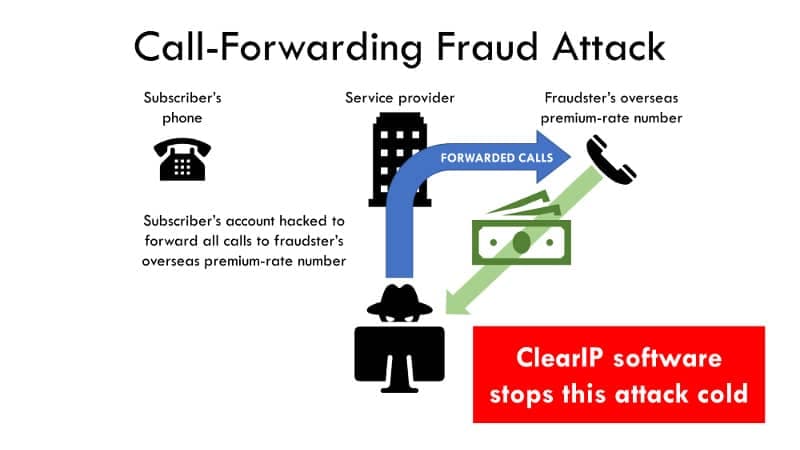TransNexus launches new telecom fraud prevention method
Feature Closes Unconditional Call Forwarding Vulnerability
ATLANTA, Georgia, June 19, 2018 — TransNexus today announced the availability of a new method in their ClearIP software to protect telephone subscribers and service providers from a vulnerability associated with unconditional call forwarding. This new method, Blacklist Forwarded Calls, makes it safe for service providers to offer call forwarding features to their customers.
“Telecom fraudsters are relentless in finding ways to exploit vulnerabilities in telecom systems,” said Jim Dalton, CEO of TransNexus. “This particular attack profile, which targets the unconditional call forwarding service that many service providers offer their customers, is so serious that some providers had to suspend it. We’re pleased to offer this new method in ClearIP to make the service safe to use again.”
This fraud attack scenario takes place when a fraudster gains access to a telephone subscriber’s account on the telephone company’s web portal, often either by guessing their password or capturing it with a scam using email or a phony website.
Once the fraudster has gained access, they change the subscriber’s telephone settings to forward all calls unconditionally to a high-cost premium-rate number that the fraudster set up overseas. The fraudster then programs their computer to send lots of calls to the subscriber’s number. These calls are automatically forwarded to the high-cost destination. With unconditional forwarding, the customer has no idea that an attack is taking place.

The ClearIP Blacklist Forwarded Calls feature enables telecom service providers to configure policies that automatically block forwarded calls to telephone numbers in other countries. The result: fraudsters attempting this attack are stopped cold. If a customer wishes to allow call forwarding to overseas numbers, the software has the flexibility and precision to enable call forwarding as needed.
ClearIP is a new software-as-a-service from TransNexus. It’s hosted in the cloud, so service providers can use it without installing any hardware or software on their premises. The software uses SIP Analytics to analyze VoIP (voice-over-internet-protocol) telephone calls in milliseconds, before each call begins. This provides the fastest method of fraud and robocall detection available—much faster than older methods that analyze call detail records after calls are completed.
Contact TransNexus for more information about this feature and ClearIP.